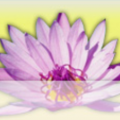Welcome home! Please contact lincoln@icrontic.com if you have any difficulty logging in or using the site. New registrations must be manually approved which may take several days. Can't log in? Try clearing your browser's cookies.
The Gateless gate...
 System
Moderator
System
Moderator
in Meditation
This discussion was created from comments split from: Zen koan in Mumonkan (Gateless Gate).
0

Comments
I just came across this post - back to the original question -
(Nearly) every koan is actually quite practical, has a specific goal and this one is no exception. With a hint and some real work, everyone should be able to get to the bottom of it. So, the title of this one could easily be:
Cognition ... What do we know and how do we know it to be actually true?
Some questions to ponder:
What is it that Xuefeng had assumed about awakening (that we may also assume)?
What did he automatically assume about what Yantou had said?
Given Deshan's lecture, what do we assume about what was whispered?
What do we as readers take away from Yantou's declaration?
Thanks for bringing my above post. Honestly speaking, when in the recent discussions web-page of this website, I saw the title of this post I thought what is the heading zen koan where, then when I saw my icon beside the thread - i thought What? I raised this thread - I do not remember anything about this thread. Then out of curiosity opened this thread saw your above post - saw your questions, then was thinking what was the koan which I had posted in this thread, then went to the top of the thread and saw that I had raised which koan - Silly me, don't even remember which threads I have raised.
It was quite like as some friend reminded of some past days - so read the post from my starting post till your above post - where are @how , @Cinorjer - these days?
Coming to the above koan, last word of the truth - my current understanding says there is no truth, so how can there be last word of truth. Deshan was hungry, so he went to the kitchen with the bowl. Xuefung still having the notion that master should know everything regarding rules of monastery, should follow them - so he tells Yantou about how Deshan slipped in his role as an abbot as per Xeufung's point of view. Xeufung may have the notion that Deshan if he is enlightened, should be following the Zen rules, which were made in the monastery for the Zen monks to follow to help them in their practice to reach enlightenment - so when Deshan missed a rule, Xeufung may have thought that Deshan may not be totally enlightened.
What Yantou whispered to Deshan, this I do not know. Why Deshan gave a totally different speech the next day - I do not know.
@jwredel: Thanks for bringing my above post.
Nicely done. As an 'insight path', Zen (and all of Buddhism for that matter) is greatly concerned with a way of knowing which insights are ultimately to be accepted. To that end, many schools of Buddhist philosophy argue that knowledge comes from only three sources:
And you should be able to see all three of these notions presented in this koan. For example, as you say, it does seem that Xuefung had some notion of awakening that biased his perception of Deshan's actions - enough that Xuefung felt the need to seek out the counsel of Yantou. And then Yantou goes on to declare that Deshan was, in fact, not awakened. But where in all of that is anything that Xuefung can say for sure he knows to be true? That is ...
Did he consider all the reasons that Deshan might have mistakenly showed up at the dining hall?
Because Yantou declared that Deshan was not awakened, did that actually make it so?
And finally, if he was so sure that Zen masters never make mistakes, and so it made perfect sense when Yantou made his declaration, did he ever question the source that knowledge within himself?
And all that is just the first couple lines ...
Hello, @jwredel . I don't think anyone has welcomed you yet. Nice to meet you.
You have a lot of information under your belt.
Good reading.
Thank you @federica. Yes, I have been a student in the Zen tradition for nearly 30 years.
Oh, so you know a bit about it then.
I posted this thread earlier today. You may already have seen it. I'm sure you can relate to the content. I hope you enjoy it.
Thanks @jwredel . Can you also please have a look at this thread http://newbuddhist.com/discussion/25323/checking-my-understanding-from-zen-perspective which I raised for checking my understanding from Zen perspective. Thanks in advance.
I am reminded of Jane Hirshfield's definition of Zen: